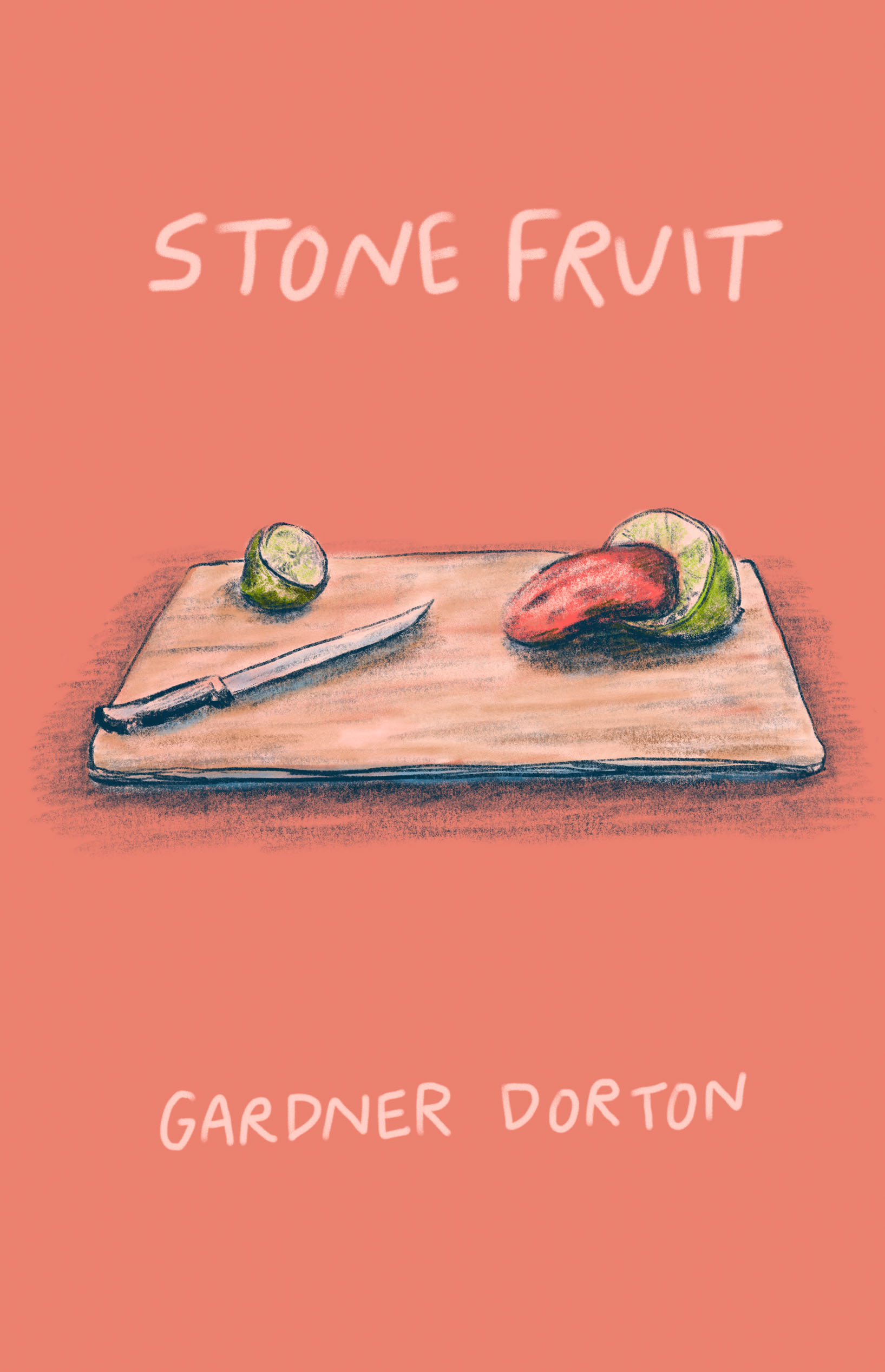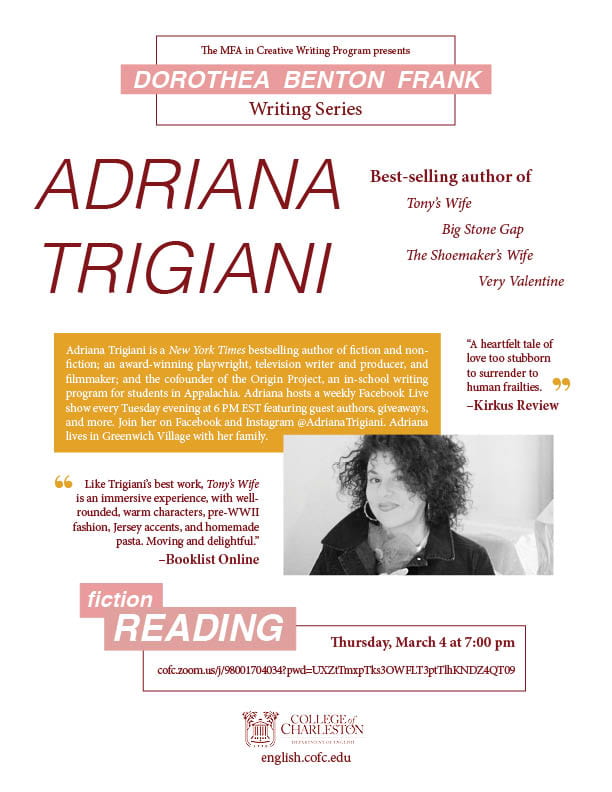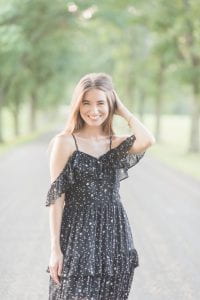 Abigail Fitzpatrick virtually (and safely) interviewed our newest Woodfin Fellow in Fiction, Drew Welborn, to ask him about his writing journey and experience. When Drew isn’t writing or studying, he enjoys being on the tennis court, watching scary movies, and, of course, playing with his labradoodle, Pearl.
Abigail Fitzpatrick virtually (and safely) interviewed our newest Woodfin Fellow in Fiction, Drew Welborn, to ask him about his writing journey and experience. When Drew isn’t writing or studying, he enjoys being on the tennis court, watching scary movies, and, of course, playing with his labradoodle, Pearl.
Where are you from and what did you study for your undergraduate degree?
I’m from Anderson, SC—not far from Clemson and Greenville. I went to undergrad at Anderson University, where I earned my BA in English. Also, I finished my MA in English Literature at Clemson University before joining the MFA program at Charleston.
What sparked your interest in writing fiction?
I don’t know if there’s a specific thing that sparked it. I’ve just always enjoyed it and I tended to take a creative approach to writing just about any assignment. In elementary school, I wrote a story about a time machine for a contest and I even attempted to write a novel about a werewolf (which was sadly unfinished!), and I won a local short story contest in high school. So that interest has always been there, but I never thought about pursuing it seriously until I encountered the workshop scene at AU and Clemson. I had very encouraging professors that made me feel like I could really do this.
What’s your favorite fiction novel and why?
Honestly, I’m not sure I have a favorite novel. I feel like it changes with whatever I’m reading. So right now, Karen Russell’s Swamplandia! is on top. I love the way she plays with reality to enhance the very real, human experience of her characters. However, I definitely have a favorite short story: “In the Cemetery Where Al Jolson is Buried” by Amy Hempel. It’s the first story I read that made me feel like I needed to write. If I could move someone with my writing in just a fraction of the way that that story moved me, I’d consider myself a success.
If you could meet one author, dead or alive, who would it be and why?
This is a tough one! Of course, I have to say Amy Hempel just so I could thank her for writing my favorite story. But I’d also love to pick her brain about her writing process and style. Every line, down to each singular word, is so expertly crafted—it’s beyond impressive. I’d also love to host a round table of sorts with Stephen King, Karen Russell, Carmen Machado, and Mary Shelley where I could just take in the scope of their imaginations. Their storylines are, for lack of a better word, otherworldly.
What are some themes you find reoccurring in your writing?
I find myself focusing in on characters that have essentially reached their breaking point. They’ve been let down, often by those closest to them. But I want to go beyond that—the characters I write about play an equal, if not bigger, part in that undoing. They’re let down, ultimately, by themselves. Sometimes they recognize their role in their own undoing, sometimes they don’t. Disappointment is something we all know and are probably all too familiar with—which is where writing about these characters comes into play. That’s what I find so appealing about writing: all the ways it can help us work through those anxieties and tensions. Hopefully exploring the ways in which my characters cope with these moments doesn’t just help me as, but readers as well. At least I hope it will!
Where do you find inspiration for your writing?
Oh, man…anything and everything! I feel like that’s such a bad answer but it’s true! I used to think I could only write about things I’d experienced, although that tends to lead to a lot of sitting around. In the last few years, I just look for anything that sparks some sort of interest. It could be something I’m watching on TV, a song lyric, an ad in a magazine, a random comment from someone…truly anything. Recently, I wrote a short piece inspired by an entry on a Buzzfeed list. So—like everything else in 2020—anything goes these days!
 T Kira Māhealani Madden is a Chinese, Kānaka Maoli writer, photographer, and amateur magician. She holds an MFA in creative writing from Sarah Lawrence College and an BA in design and literature from Parsons School of Design and Eugene Lang College. She is the founding Editor-in-chief of No Tokens, a magazine of literature and art, and is a 2017 NYSCA/NYFA Artist Fellow in nonfiction literature from the New York Foundation for the Arts. She has received fellowships from MacDowell, Hedgebrook, Tin House, DISQUIET, Summer Literary Seminars, and Yaddo, where she was selected for the 2017 Linda Collins Endowed Residency Award. She facilitates writing workshops for homeless and formerly incarcerated individuals. Her debut memoir, LONG LIVE THE TRIBE OF FATHERLESS GIRLS, was a New York Times Editors’ Choice selection, a finalist for the National Book Critics Circle John Leonard Prize, a finalist for the LAMBDA Literary Award for lesbian memoir, and is now in development as a feature film. Winner of the 2021 Judith A. Markowitz Award, there is no period in her name.
T Kira Māhealani Madden is a Chinese, Kānaka Maoli writer, photographer, and amateur magician. She holds an MFA in creative writing from Sarah Lawrence College and an BA in design and literature from Parsons School of Design and Eugene Lang College. She is the founding Editor-in-chief of No Tokens, a magazine of literature and art, and is a 2017 NYSCA/NYFA Artist Fellow in nonfiction literature from the New York Foundation for the Arts. She has received fellowships from MacDowell, Hedgebrook, Tin House, DISQUIET, Summer Literary Seminars, and Yaddo, where she was selected for the 2017 Linda Collins Endowed Residency Award. She facilitates writing workshops for homeless and formerly incarcerated individuals. Her debut memoir, LONG LIVE THE TRIBE OF FATHERLESS GIRLS, was a New York Times Editors’ Choice selection, a finalist for the National Book Critics Circle John Leonard Prize, a finalist for the LAMBDA Literary Award for lesbian memoir, and is now in development as a feature film. Winner of the 2021 Judith A. Markowitz Award, there is no period in her name.








